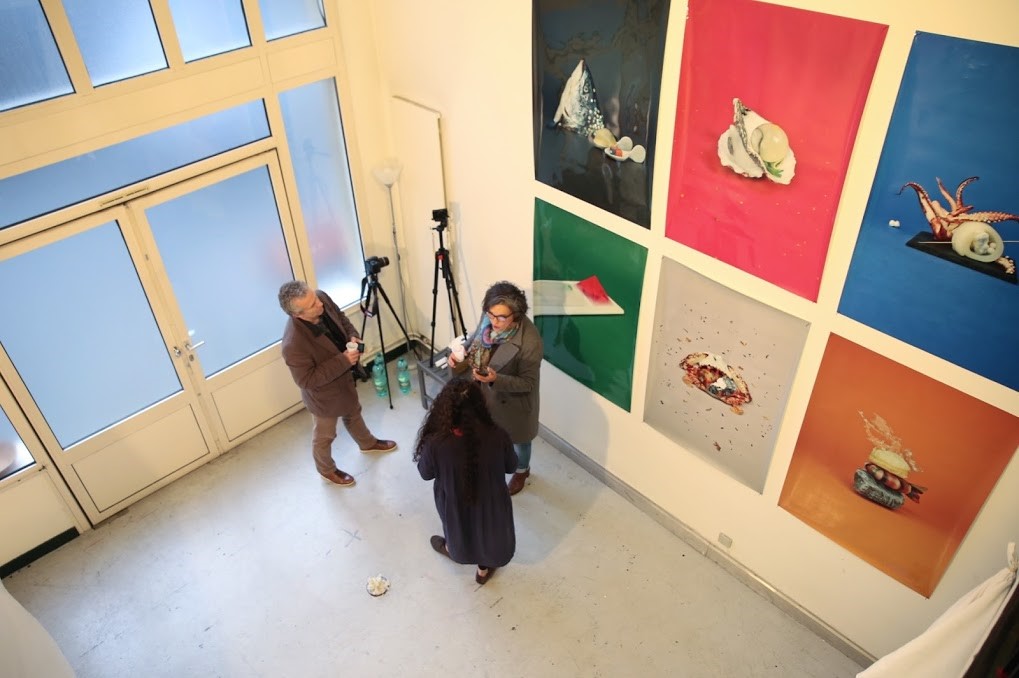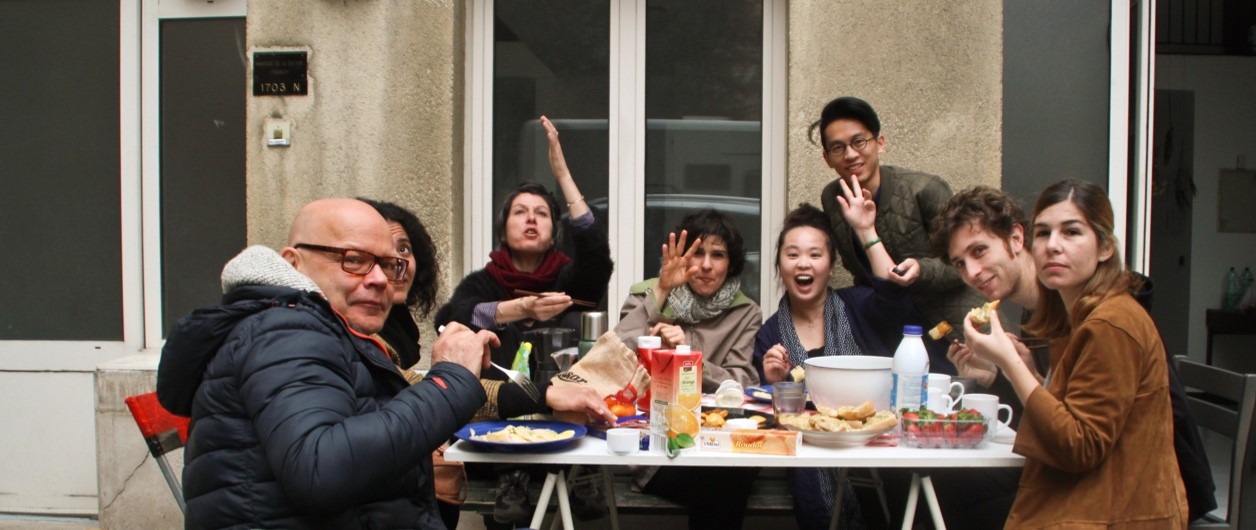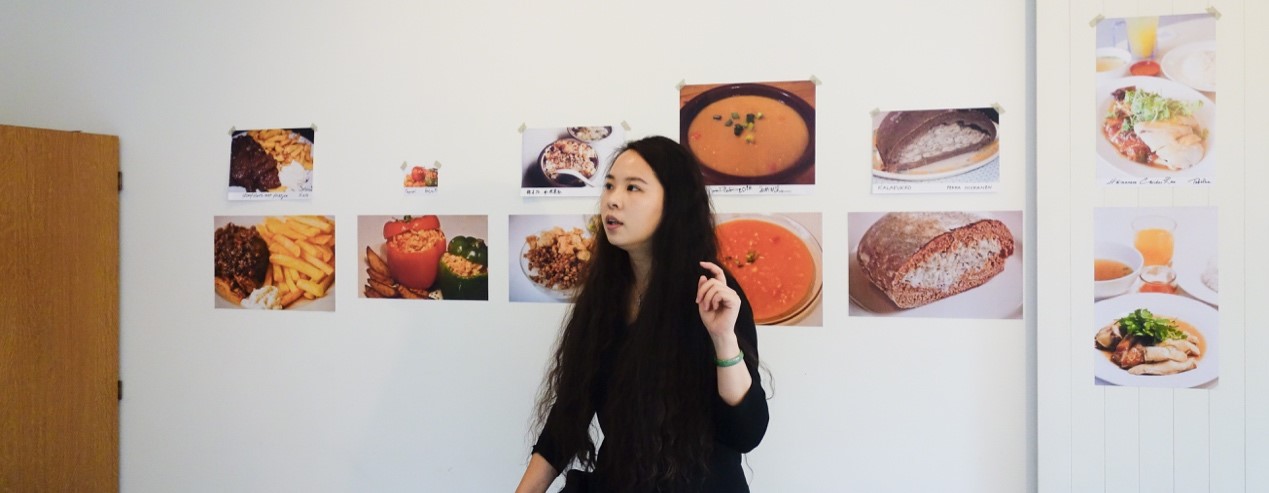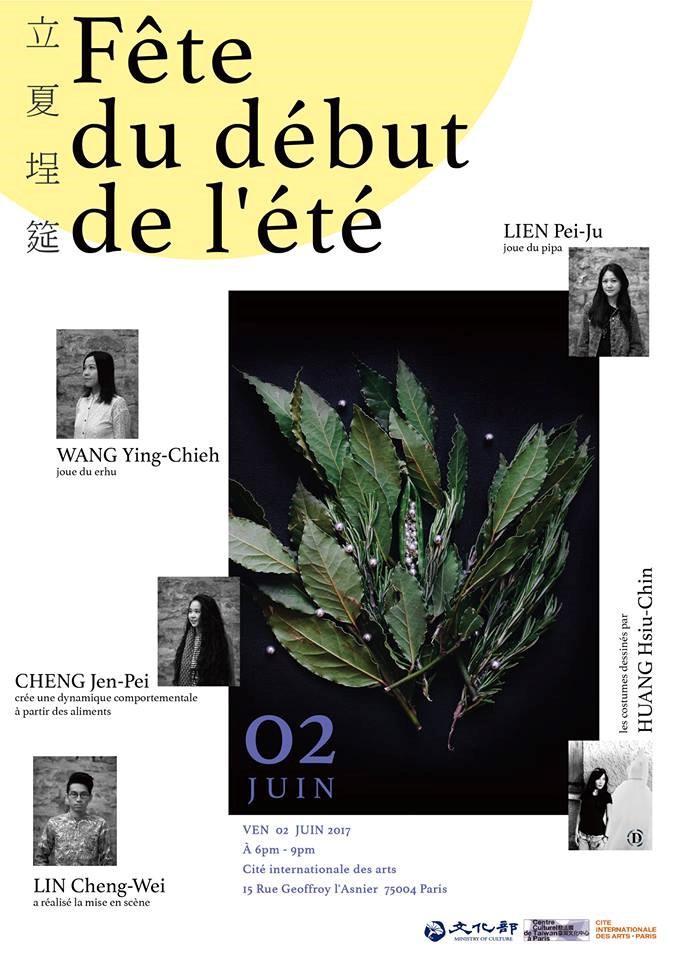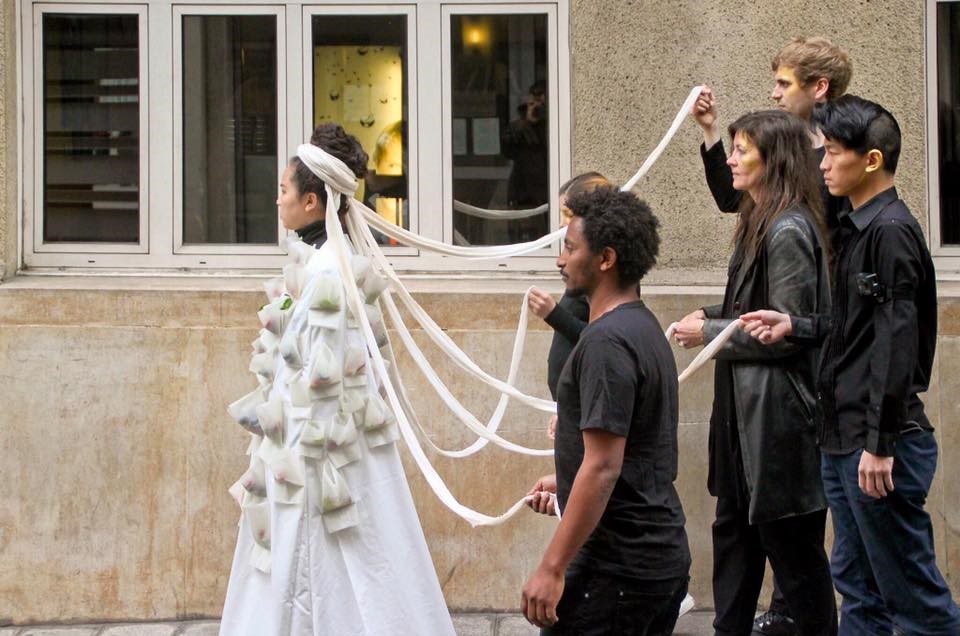Artists
Photo Credit: NIU Chun-Chiang
CHENG Jen-Pei
CHENG Jen-Pei
| Location | France / Paris |
|---|---|
| Residency | Cité Internationale des Arts |
| Year of the Grant | 2016 |
| Work | Your Cuisine My Recipe |
| Personal Website | CHENG Jen-Pei's Personal Website |
Cheng began a long-term project of dining with strangers she met in Paris, focusing on the relationship between food culture and memory.
Thoughts on Residency Program
“Food is a matter of identity. Most of it comes from a price-dependent value that includes what kind of food ingredients and what kind of cooking methods are available. These factors are influenced by their location and climate. However, under the intervention of mankind, the state of food distribution has been transformed into the political and class issue.”
I had brought my photographic work from Taiwan into Paris. Next Meal is based on the port city of Keelung to design the series of recipes for the future from the aspects of maritime fisheries and freight shipping. After interviewing the local fishermen and industry persons, I imagine that these traditional industries will rise and fall over the upcoming years. By studying the local ingredients, urban environment, and the customs and culture of residents, I have extended my thoughts on Keelung to the imagination of the global oceans. Using photography and documents as a source of communication, I have constructed the fictional story of food in the future. The fragments of the Taiwanese city I had collected would demonstrate the appearances of food in the future and how it will be eaten, drawing forth problems of the future on the global scale.
Organizing an open studio session at the Cité Internationale des Arts Paris is not a shortcut to attract the outside audience. Whether we can invite local arts organizations and artists or not really depends on our own social management skills. If we have other friends or resources locally, that will surely be of great benefit. On the other hand, we can also make good use of the open studio sessions, when many different cultural backgrounds are available, to discuss work and observe the different ways of thinking. In the open studio sessions, the audience can focus on the work being discussed, both in the experimental or production process, to stimulate one with another with new ideas.
